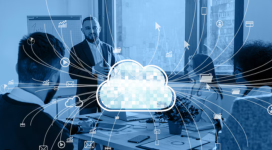Software refers to the set of instructions, data, or programs used to operate computers and perform specific tasks. Unlike hardware, which is the physical part of a computer, software is intangible, but it gives machines their purpose.
Every time you open a web browser, edit a document, use an app, or run a diagnostic tool — you're interacting with some form of software.
From everyday tools like Microsoft Word to complex systems like enterprise resource planning (ERP) platforms or AI engines, software is the invisible force behind the digital world.
This model has especially empowered startups and remote teams with low-cost, scalable solutions.
As the digital age progresses, the importance of well-designed, secure, and user-friendly software will only grow.
Do you prefer open-source or proprietary software for your daily work or studies?
What software do you think has changed your life the most?
Let’s share and discuss in the comments below!
Every time you open a web browser, edit a document, use an app, or run a diagnostic tool — you're interacting with some form of software.
From everyday tools like Microsoft Word to complex systems like enterprise resource planning (ERP) platforms or AI engines, software is the invisible force behind the digital world.
Types of Software
- System Software
- Includes operating systems like Windows, Linux, or macOS.
- Manages hardware resources and provides the environment for other software to run.
- Application Software
- Programs designed to help users complete tasks like browsing, editing, or messaging.
- Examples: Google Chrome, MS Office, WhatsApp.
- Programming Software
- Used by developers to write, test, and debug other programs.
- Examples: IDEs like Visual Studio, Code::Blocks, and compilers.
- Middleware
- Acts as a bridge between system software and applications, especially in large systems or cloud environments.
- Embedded Software
- Found inside hardware devices like washing machines, ATMs, or smartwatches.
How Software Has Transformed Industries
- Education:
Virtual classrooms, learning management systems, and educational apps have made learning more accessible and interactive. - Healthcare:
Hospital management systems, diagnostic tools, and telemedicine software improve patient care and administrative efficiency. - Finance:
Banking apps, trading platforms, and fraud detection systems streamline financial services. - Retail & E-commerce:
Inventory management systems, POS software, and online marketplaces drive global sales and customer engagement.
The Rise of Cloud-Based Software
Today, more software runs in the cloud than on individual devices. These Software as a Service (SaaS) platforms offer:- On-demand access from any location
- No need for installation
- Subscription-based pricing models
- Real-time updates and collaboration features
This model has especially empowered startups and remote teams with low-cost, scalable solutions.
Open Source vs. Proprietary Software
- Open Source:
Freely accessible and modifiable (e.g., Linux, LibreOffice, GIMP). Ideal for innovation and transparency. - Proprietary Software:
Owned by a company and not openly modifiable (e.g., Windows, Adobe Photoshop). Often includes customer support and advanced features.
Software Development Trends
The software industry evolves constantly. Current trends include:- Low-Code/No-Code Platforms: Empower non-programmers to build apps.
- AI-Powered Tools: Use machine learning to generate or optimize code.
- Microservices Architecture: Breaks down large apps into manageable modules.
- DevOps and CI/CD: Streamlines development with continuous integration and delivery.
Conclusion
Software is no longer just an IT component — it is the heart of every digital interaction we have. From managing traffic systems to predicting weather, from streaming your favorite show to building satellites — software makes it all possible.As the digital age progresses, the importance of well-designed, secure, and user-friendly software will only grow.
Invitation to Discussion:
Do you prefer open-source or proprietary software for your daily work or studies?
What software do you think has changed your life the most?
Let’s share and discuss in the comments below!

